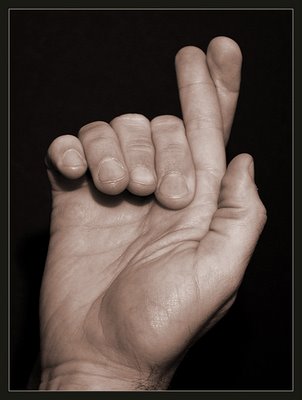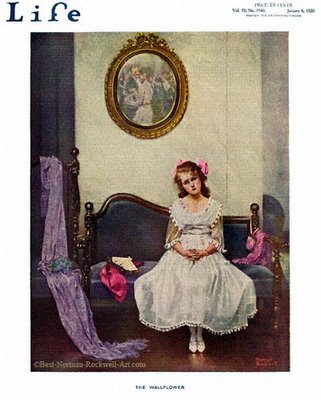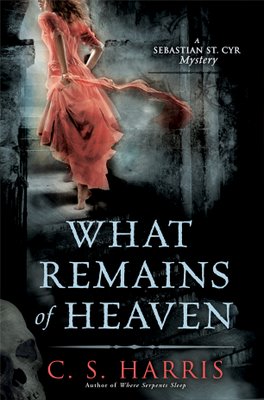
Some Good News...And More Water
I've had several pieces of good news this past week: First, What Remains of Heaven has been nominated for Romantic Times' Best Historical Mystery of 2009 award. Then, I learned that What Angels Fear and Why Mermaids Sing are both going back to press. This makes the fourth printing for Angels, which is pretty neat since it shows the series is continuing to pick up new readers--and has made my publisher happy. And, best of all, I've learned that the first month sales of the hardcover release of What Remains of Heaven were almost double last year's sales of Where Serpents Sleep! So in a publishing environment where "flat is the new up," my sales are UP up. As for the rain... New Orleans has now recorded 21.2 inches of rain for the month of December. According to the weather service, that total is the most ever to fall in a single month in the New Orleans area since 1947, when the service started keeping records at the airport. It even exceeds the total for the month of May 1995, when New Orleans had their big rain-induced flood. Of course, most of that rain fell in something like 12 hours, so this isn't nearly so bad. But then, we're still only halfway through the month, and the ground is beyond saturated.  I was planning to go Christmas shopping today. Not happening! Labels: New Orleans, publishing industry
The Year the Publishing Industry Committed Suicide—with a Little Help from Its Friends
 Times have been tough for most of us lately. But the publishing industry seems to have chosen 2009 as the year to shoot itself in the foot. And the arm. And the leg…. First came reports that certain houses were cutting out Advance Readers Copies/Editions for all but all but a few lucky Chosen Ones. Publishers have always had a love-hate relationship with ARCs. On the one hand, they can be a good way to get a buzz going for a book. On the other hand, they’re expensive to produce and lately they have a nasty way of ending up on eBay, thus cutting into an author’s sales. So why not phase them out? Well, the main reason is because without ARCs, reviewers can’t review a book (most really don’t want to deal with PDF files). And without reviews, no one is going to know a book is out there. And if no one knows a book is out there, guys, how can you expect anyone to buy it? Oh, look; our sales are tanking even worse! So what did publishers do? They looked at their falling sales, got spooked, and came up with the bright idea to postpone the release of many their “big” books to the fall, by which time they assumed the economy would be better. It would have been bad enough if just one house had done this, but great minds—and not so great ones—tend to think alike. Result? Lots and lots of books—both “beach books” and literary fiction—that were supposed to come last summer were all dumped on the market this fall, along with all the “big” books that are normally released in the fall. As a result, more books were competing for fewer buyers, and everyone’s sales tanked. Clever, guys; very, very clever. Then came the news that the grand dame of romance, Harlequin Mills and Boon, has decided to open up a vanity press division. Why is this an issue? Because writers’ organizations really, really hate vanity presses; they simply do not recognize them as legitimate publishing houses. So everyone from Romance Writers of America and Mystery Writers of America to Science Fiction Writers of America and Fantasy Writers of America have reacted by announcing that any author whose book is published by Harlequin (that includes Mira, which has been trying to position itself as a big league publisher of mysteries and thrillers) is no longer eligible for any of those organizations’ awards. Ouch. Obviously, the biggest impact of this decision will be felt by RWA. Harlequin’s sales make up something like fifty percent of all romance sales, and I suspect that Harlequin authors and those wanting to become Harlequin authors make up more than 50% of RWA’s members. The entrants to certain categories of the RITA come entirely from HM&B, and HM&B contributes heftily to RWA’s national convention every year. Basically, HM&B and the writers’ organizations are in a pissing contest. Who will win? I don’t know. But all I gotta say is: Great timing, guys! And then Walmart decided they wanted to corner the market for online book orders. How? By selling the top ten bestselling hardcovers at a huge loss, for $9. In order to complete, Amazon.com matched Walmart.com’s prices, followed by Kmart. So readers now have a choice between paying $9 for a bestseller or $25 for a midlist author. Way to slaughter the midlist, guys—along with any remaining bricks-and-mortar bookstores. The most famous beneficiary of this scheme was probably Sarah Palin, whose $30 book was selling for less than a third its cover price…and don’t get me started on the millions Harper Collins is spending to hire a $4000/hour private jet for a month to ferry this “author” and her 15-plus entourage on the book tour to end all book tours. Literally. It just keeps getting worse. Across the country, more and more hard-pressed newspapers have been eliminating their book sections and book reviews, making it harder and harder for authors to get their books reviewed anywhere except online. In September, Publishers Weekly announced that they would now only review one mass market original per house a month. And then, today, comes the news that Nielsen Business Media has “made the decision to cease operations” at Kirkus Reviews (as well as Editor & Publisher.) For those of you not familiar with Kirkus, it was perhaps the most respected forum for book reviews, largely because they were tough. As Ron Charles at the Washington Post Book World tweeted, "Worst news in a long time: Kirkus shutting down. For me, they were the last reliable source of negative reviews." In other words, if a book got a good review from Kirkus, it meant something. Now, that’s gone. So just how bad are things in the publishing industry? According to insiders, the sales of virtually all NYT bestselling authors—across the board--are down between 15-30%. Once, if an author’s sales were staying flat, it was considered the kiss of death for his career. Now, with most people’s sales tanking, if a writer’s sales are staying flat, that’s good. Or as they say in New York these days, "Flat is the new up." Labels: publishing industry
Shop Talk
I had some interesting conversations while at the recent conference in Washington, D.C.. One such conversation, with the Director of Sales for one of my houses, was particularly sobering. He said that they’d just run the numbers on all their New York Times bestselling authors for the year to date, and that the sales of every one of them were down between 15 and 30% compared to last year. Think about that. James Patterson: off 21%. A big selling romance writer I won’t name since she gave me the figure herself: off 30%. This director of sales says he’s been in the business for 30 years and he has never seen a downturn like this. You know how bookstores will sell something like, say, Dan Brown at 40% off? It’s a “lead loss.” The bookstore takes a loss on the bestseller in order to lure buyers into the store. Normally, readers will buy the lead loss and four or five other books. Now, they’re buying the lead loss and just walking out. Not good. He does say he’s hopeful things will turn around this fall. But here’s the part that worries me: It seems all the houses have been holding back the books of many of their traditional big sellers, hoping the market will improve later in the year. So there are going to be lots of books by big-name authors coming out this fall. And as my source said, they’re going to cannibalize each other’s sales. Unfortunately, I have three books coming out this fall—one paperback original, one paperback reprint, and one hardcover original. Not good news. Not good news, at all. Labels: publishing industry
Some Sorta Good News, and Some Painful News
Okay, here’s the good news: there will be a sixth Sebastian St. Cyr book! Here’s the bad news: it will be released as a trade paperback original. In other words, no hard cover, no massmarket paperback. The Powers That Be are hoping this maneuver will reposition the book and increase sales. Personally, I hate trade paperbacks. I think they’re the worst of both worlds: insubstantial and impermanent like a massmarket yet big and bulky like a hardcover. But I know a lot of people who do like them. And here’s the weird thing: stores like Barnes and Nobles keep trade paperbacks on their shelves for a year whereas paperbacks and hard covers get sent back in just a few months. In fact, I’m told it was B & N who suggested NAL switch the series to trade. So now I need to come up with a title for this opus…. Labels: publishing industry
The Good News, and the Bad
The good news is that my thriller publishers loved the proposal for The Babylonian Codex, so all systems are go with that book. Phew. The bad news is that I still haven’t heard from the publishers of my Sebastian St. Cyr historical mystery series. My editor, Ellen, loved the proposal. So the problem isn’t the book. The problem is the economy. Although Where Serpents Sleep hit significantly higher on all the lists than any of the previous books in the series, the actual number of sales didn’t increase. Now, given that the book came out last November in the midst of the horrific stock market crash, when everyone was focused on the economy and the election, and given that its performance on the lists indicates that its relative sales were better, I think the book actually did pretty well. Without a promotional budget, it always takes four to five books for a mystery series to catch on. We’re at the tipping point. I’ve worked so hard on this series, for so long, that I’m feeling kinda sick at this point. I heard back from my thriller publishers in two days. My Sebastian book’s proposal has been with Penguin for at least a month.  Fingers crossed and squeezing tight. Labels: book proposals, publishing industry
Nail Biting Time
 I’m feeling somewhat like a wallflower, sitting around anxiously waiting to see if someone’s going to ask me to dance. Why? I currently have not one, but two book proposals out, one to each of my publishers. One proposal is for my third thriller, a book I’ve called The Babylonian Codex. The other is for the sixth Sebastian book. It’s an idea I love and starts with Sebastian’s friend, Gibson, buying the “resurrected” body of a young man and discovering that his illicit corpse was murdered. (I’d give you the title but, um, it doesn’t have one yet.) What exactly is a book proposal? It’s the first three chapters/30-35 pages and a synopsis of the book, intended to give publishers a good feel for what the finished product will be like. Book proposals can be scary things to prepare, since so much rests on them (like whether the publisher will buy the book, and how much they’ll pay). Squishing the plot line and characters of a 400 page book down into a five page synopsis in a way that not only makes sense but sounds enticing is an art. And polishing those first three chapters into something sparkling and alluring when you haven’t written the rest of the book can be a challenge. During the course of my writing career, I’ve only had one book proposal knocked back, but that experience was enough to scar me for life. I spent months researching and plotting out a second thriller I called The Bermuda Effect, and had written about a hundred pages when my editor said, “We don’t like this idea. Come up with something different.” I learned a valuable lesson: don’t invest too much time and effort and heart into researching, plotting, and writing an idea that may not sell. And I learned another, slightly more cynical lesson: the less you give them, the less they can criticize. Dazzle them with smoke and mirrors, but don’t give them too much to think about. But I still have a lot of time and heart invested in these two ideas. And the publishing environment right now is not good, so this is a bad time to be going out with one proposal, let alone two. So, yeah, I’m nervous. Stay tuned…. Labels: book proposals, publishing industry
Cross Marketing
I’ve been grumbling so much lately, I thought it was time for a post thanking my publishers for doing something brilliant. What are they doing? Since the paperback edition of Where Serpents Sleep is coming out in exactly the same month as the paperback original of The Solomon Effect, NAL and Harper Collins are putting ads in the back of each other’s books. So readers will find an ad for Where Serpents Sleep in the back of The Solomon Effect, and vice versa. This little exercise in cross marketing was the brainchild of my NAL editor, Ellen Edwards—who is, by the way, both the world’s most brilliant, conscientious editor and someone who loves the Sebastian series every bit as much as I do. The two series are extremely different from each other, given that one is a contemporary thriller with a breezy tone and the other is a fairly dark historical mystery. But there are sure to be some readers who will enjoy both books. And given that the print runs for my thrillers are about fifteen times that of the historical mysteries (from which you can gather that the Sebastian series is, for me, a labor of love), we’re hoping the Sebastian series in particular will get a big boost. I tried to upload the image of the Harper Collins ad, but couldn't get it to work. But there'll be a picture of the cover, with this copy: Think you know what’s real and what isn’t? Think again . . . If you enjoy C.S. Harris’s unique blend of action, suspense, and rich characterization, you’ll love her new edge-of-your-seat contemporary thriller series! Collaborating with former intelligence officer Steven Harris, she now also writes as C. S. Graham. Don’t miss The Solomon Effect! CIA agent Jax Alexander and remote viewer Tobie Guinness hunt for a lost Nazi U-boat that’s hiding a deadly secret in this new novel by the author of The Archangel Project.
www.CSGrahambooks.comOn Sale: 9/29/09 Labels: marketing, publishing industry
Of Heaven and Hell
Once upon a time, a historical mystery writer penned a rather ghoulish tale set in a dark, ancient crypt and strewn with dead priests and mummified corpses and all manner of nasty secrets. She called her tale What Hell Marks, after a favorite Shakespearian quote. She sent if off to her publishing house, along with what she thought was a great suggestion for a cover, including a menacing arch, a worn staircase, a glimpse of the skirt of a woman running away, and a skull. Her publishing house said, “You know how we talked about doing something to make this series attract more female readers?” To which our writer nervously replied, “Yes….” “Well, we think women would be put off by a book with ‘hell’ in the title. So we’re changing it to What Remains of Heaven.” Our writer attempted to demur, but The Powers That Be prevailed. (Unless your name is Grisham or King, The Powers That Be nearly always prevail.) Our writer was unhappy, but she’s been in this business long enough to know that she needs to roll with the punches. Then the cover arrived. (Cue screams of horror.) Unfortunately, our writer is prevented by The Powers That Be from showing you this original version. But let me describe it for you: Drift back in time to the 1960s, when Gothics were all the rage. Got that mindset? Good. Now, picture a woman, barefoot, wearing only a white corset and a petticoat (complete with bare shoulders, heaving bosom, and bare back showing through the lacings of the corset) running up dark castle-like steps wrapped in an ethereal light. Think Sarah Jessica Parker in a corset and torn petticoat being chased by a ghost. You may suspect I am exaggerating. Believe me, I wish I were. Our author takes one look at this cover and nearly swoons. She frantically calls her agent. She emails her publishing house. She is reminded, not so subtly, that her name is not Grisham or King. She is told, “The marketing department LIKES the cover. We said we wanted to do something to make this series appeal more to female readers, remember?” (Cue death knell in the distance.) Our author weeps. She pleads. She says, “But it looks like a romance! And it is NOT. Don’t you think this cover sends a false message? This book is strewn with dead bodies.” She is told a new cover would be prohibitively EXPENSIVE. She says, “Can you maybe cut the woman off at the waist so all we see is her skirts?” No. “Then at least photoshop it to make the corset and petticoat a color, and get rid of the bareback seen through the lacing and add sleeves so that it looks like a dress? And put shoes on her feet? And get rid of the paranormal-like lighting effects? And maybe add a skull at the base of stairs? And, and…” After much grumbling, she receives a new version, and a warning: This is it. Like it or lump it. Alas, our author is lumping it (whatever that means), and crossing her fingers that this cover won’t put off every male reader (and non-romance reading female reader) that her series has. The cover just went up on Amazon, and already our author has received this comment from a reader named Chen: “Is that really the cover? Or is that a "stand-in" until a cover is finalized?
I'm hoping it's the latter. Otherwise it gives it too much of a "romance novel" feel. I am really enjoying this series and I guess I'd like to see the book have just the right look… I hope that's not the final cover.” Alas, Chen; that’s the final cover. Believe me, I feel your pain. Times a million. I try to console myself with the thought that at least it's no longer Sarah Jessica Parker in a corset being chased by a ghost. So, without further ado, here it is:  Labels: covers, publishing industry
The Future of Publishing Revisited
Once upon a time, publishing was considered a recession-proof industry for a simple reason; people always need to eat, and people need to be entertained. Reading was one of the few, cheap forms of entertainment available when there were only three channels on TV and not much else to do. But now there's cable TV, Netflix, video games, the Internet... lots of alternatives, which is why in this recession the New York houses are hurting (and so are those of us who supply the New York houses with their product—namely, writers). Last week I published an excerpt from a recent article written by Lev Grossman. He had some scary things to say about the future of publishing. Yes, our industry is changing, but I don't agree with all of his predictions, in particular his emphasis on the impact of e-books on the industry. Remember back when e-books first appeared and so many people were heralding them as the future of publishing? Ten-plus years on, that now seems less likely. Most of us spend far too much of our working lives staring at a screen (and a big chunk of our non-working lives, too) to want to read a book that way. Oh, my poor eyes. Initially, the E-book publishing phenomena held glittering promise because it was seen as a way for experimental, edgy writers to get their stuff past those stuffy, shortsighted New York-based guardians of orthodoxy known as editors. In the romance genre, for instance, writers and readers of sci-fi romance and fantasy romance in particular enthusiastically embraced e-publishing, since the big publishing houses were producing so little of “their” kind of books. Now, with the 10-year-plus craze in vampire romance still going strong, it seems New York publishes little else. Did New York listen to the e-publishing world and respond, or would the dark urban fantasy phenomena have come even without e-books? I could be wrong, but I suspect New York was reacting (albeit more slowly than e-book sites) to the popularity of shows like Buffy the Vampire Slayer rather than to anything else. What I do know is that the enthusiasm of many for cheap or free e-books quickly cooled when readers discovered what New York editors actually do to earn their salaries. They aren’t there to serve as the guardians of orthodoxy, however much it might seem that way to the frustrated writer weary of being told his book is unmarketable. New York editors are there to weed out the wannabe writers who slept through English Grammar 101; the writers with no ear for dialogue and no clue how to set a scene; the writers who make up their plots as they go along and never bother to go back and revise for consistency. In other words, readers gained a new appreciation for New York publishing houses in their role as what Steve Malley, in an excellent analysis of this question, calls Quality Portals. Nevertheless, e-publishing has had an impact on publishing, and not necessarily in a way that is positive for writers. My agent was in the midst of negotiating to get back the rights to several of my old, out-of-print romances when new Kindle versions of said books suddenly appeared on Amazon.com. In other words, e-books have become a way for houses to keep books “in print” and therefore under contract without having to devote warehouse space to actually stocking said books. This can be avoided with special wording in new contracts, but older books remain vulnerable. This post is getting far too long. I’m off to the lake for a few days of intensive writing, but I plan to revisit other aspects of this topic next week. Labels: publishing industry
Title Woes, Part III (or is it IV? IX?)
In which the title sagas wage on. I thought the title for my next contemporary thriller had been nailed down: The Deadlight Connection. The editors liked it. The sales department (far more important and powerful than mere editors!) liked it. The recently released edition of Archangel even carried teaser chapters of the book with the Deadlight title—advance publicity. So it was a done deal, right? Wrong. About six weeks ago, Harper Collins cover conferenced the book. This is when the editors and marketing people get together with the art department to come up with cover concepts. Only problem was, the art people “couldn’t get their heads around the title.” (Huh?) So they wanted a new title. Preferably The Dead SOMETHING Connection. My reaction was, You’ve got to be kidding? NOW you decide the title needs to be changed. And you want me to come up with a title to fit a cover idea? With the word “dead” in it? Like what? The Dead Nazis Connection? Round and round we went. Like a good, cooperative author (uncooperative authors, unless they are HUGE, soon find themselves OOPs—Out of Print), I tried to come up with a new title. Steve and I spent hours, day after day, brainstorming new titles, but the results ranged from the dull to the ridiculous. I kept hoping HC would give in and go with the original title. But every Monday there would be a new little email in my box: Come up with any good title ideas over the weekend? Finally, inspiration hit. I sent the idea in. A shout of jubilation went around the editors, the marketing people, the Art Department. A new title was born. And it shall be called The Solomon Effect. My editor thought to ask, Does it have anything to do with the book? To which I responded, I’ll make it fit. Sigh. Labels: covers, publishing industry, titles
On Coop
No, this isn’t a post about chicken coops. The coop I’m talking about is publishers’ coop, which is pronounced “co-op” even though it’s spelled like the barnyard habitat of our little feathered friends. So what is coop? Coop is the money publishers pay to get their books a better position in stores. The theory is, the more people who see a book, the more people who will buy a book. If a book is simply stuck sideways on a shelf at the back of the store, it could be the most brilliant novel ever written but no one will ever know it because it will languish unseen and unread in the dark. Until I became involved in the book industry, I did not know publishers did this. I thought when you went into a drug store or grocery store and saw Stephen King’s latest in a stand by the checkout behind a sign that said, “Number One Bestseller,” it was because the book was, literally, the number one best seller. Now, it could very well be, but that’s not why it’s there; it’s in that slot because that’s the slot King’s publisher paid for. If the publisher had only paid for “Number 8”, that’s where it would be. If a publisher hasn't paid any coop, then you won't see that book at those racks. Simple as that. Publishers’ coop money also pays for books to sit on the tables at the front of Barnes and Nobles and at Borders. The books on the end caps (the ends of the rows, where books are displayed face out) are all there because of coop. And the cardboard display stands (“dumps”) at the front of stores? Coop, again—although dumps seem to be going out of style these days. The biggest outlay in coop ever spent in publishing history was laid down for, you guessed it, The Da Vinci Code. Bottom line: coop works. So for writers, having their publisher agree to pay for at least some coop is a Really Big Deal. It’s also frustratingly hard to get. I’ve written over a dozen books, yet The Archangel Project is the first book I’ve ever had come out with coop. Traveling up to Baltimore barely a week after Archangel’s release was a heady experience. I checked out every Hudson’s News I passed, on every concourse, and there it was: The Archangel Project, in Bestseller Slot Number Twenty-something. A little higher number would have been nicer, since it would have brought the book up to eye level, but hey, I’m not complaining! As the writer of one of those twenty-five Anointed Ones, it was great. But as a reader, my reaction was a little bit different. You see, the more bookstores I ducked into, and the more I saw the exact same books (in the bookstalls on the concourses, the twenty-five “bestsellers” were typically all they carried), the more troubled I became. I mean, what if I was flying and none of those twenty-five titles appealed to me? Think about it: thousands of newsstands and bookstalls in airports across the country, all carrying the same twenty-five titles, all there courtesy of the coop paid by their publishers. Magnify that by the Walgreens, the Walmarts, the fill-in-the-blank chain. Oh, look; there’s the latest Grisham. And there’s the Lisa Kleypus. And there’s the latest Raymond Khoury. Again and again. What if I was looking for, say, C.S. Harris’s Why Mermaids Sing (also released this month in paperback, but given no coop)? Tough. Is Archangel a better book than Mermaids? No. Is it going to sell a heckova lot better, thanks to all that coop? You betcha. On which thought I’ll leave you with this snapshot of Archangel on the shelves of a bookstall in Tampa—right between the latest Grisham and the latest Khoury.  Labels: coop, publishing industry
And You Thought That Signed First Edition Was Worth Something
A reporter for the Guardian spotted this ad on Craig’s List: Wanted. Fourteen people to fake authors’ autographs on 53,760 hardcovers at a Los Angeles warehouse. “You will need to be able to copy the look and style of both authors’ signatures,” says the ad. You also must be able to stand the rigor of signing books for 8 hours a day, at an estimated rate of one book every 15 seconds. If you’re good at forgery, go for it: They’re paying $25 for every 200 books signed. Exactly who are the lazy authors who can’t be bothered to sign their own books? That’s a deep dark secret. Enquiring minds want to know. And here's the news from Florida: "I told you not to worry. All we got was a little rain shower." Labels: publishing industry
On Foreign Rights
 This is a topic sparked by questions I received after I posted my Aussie covers a couple of days ago. It’s one of those nuts and bolts issues in publishing that beginning writers usually don’t think about until someone sends them their first contract. So, what’s it all about? Consider Joe Author, who has just sold his new book, The Great American Mystery, to St. Martin’s Press. On the advice of his agent, Joe cedes his publisher World rights. What does that mean? Contract clauses vary, but typically a writer ceding foreign rights to their publisher does so on a 50-50 bases. In other words, if Joe’s North American publisher sells the rights to his mystery to a British publisher for $1,000, Joe will only get $500 of that. Actually, Joe might not ever see that $500. Because the sale comes under Joe’s contract with St. Martin’s, the money from the British sale won’t go directly to Joe; it will be applied against his advance. Only when Joe’s mystery earns out will he receive his $500 from the British sale. (Except of course that, even then, Joe won't get the full $500; Joe only gets $425 or $450, depending on whether his agent takes a 10 or 15 percent commission.) Now, compare Joe’s experience to Mary’s. Mary signed a contract retaining all of her foreign rights. Mary’s agent sells her French language rights to Paris for $1000. So, how much of that does Mary actually get? Agents typically take 20% of foreign sales, simply because they’re more time-consuming and therefore more expensive to negotiate. But Mary still makes $800 out of her foreign sale, compared to Joe, who only made $425. From this you might conclude that it’s a no brainer for authors to retain their foreign rights. Well, like so much else in the publishing industry, it’s not that simple. First of all, sometimes a house will refuse to budge on foreign rights. You can either sign over all your foreign rights, or go find another publisher. Hmmm. At other times, a house will pay more for a book if it comes with world rights. The thinking here is, We THINK this book will earn out if we pay $30,000 for it, but we’re not sure. If we hedge our bets and hold onto World rights, we can up our chances of covering our asses if the book bombs. So the publisher tells the editor, “Offer Joe $25,000 for North American rights only, but $30,000 for World.” Again, the author has a choice to make. It’s possible he could insist on retaining his world rights and then never make a single foreign sale. Bzzzzz. You lose $5,000. A lot depends on the author’s agent. Large, prestigious agencies like William Morris have dedicated foreign sales departments. Their clients typically—but not always—retain their foreign rights. On the other hand, most small, one-man agencies are seldom equipped to make foreign sales. Their clients are best advised to sign over their foreign rights to their publishers and be happy with 50% (minus the agent’s 10-15%, of course) of whatever rights their publisher sells. Frequently a publisher will insist on retaining World English rights. This means the author can sell the book to be translated and sold someplace like France or the Czech Republic, but only the original North American publisher can sell the book to Britain or Australia. That’s the nuts and bolts. What’s my personal experience? When I first started out in this business, I was with William Morris, and they saw to it that I retained all my foreign rights. When my agent, Helen, left William Morris to marry a Hollywood producer and move to California, I went with her. Her agency is small, but she works with a dedicated foreign sales agent who is very effective. We usually retain foreign rights, but we sometimes cede World English. More about that later. Just how lucrative are foreign sales, anyway? I know some authors who’ve sold to German and French publishers (typically the best-paying markets) for six figures. That is rare. Most foreign sales are for $1-5,000. But if an author sells to fifteen or twenty different countries, that can add up. Particularly when you figure this is “found” money—essentially gravy on top of whatever you made from your sale to your North American Publishers. Of course, not all books sell well overseas, and not all overseas markets are easy to enter. I’ve found that romances sell much better than historical mysteries; I’m STILL selling my romances to new foreign publishers. I’ve also found that Britain is a really, really hard market to crack. My advice to beginning authors is, If your publisher wants World English rights, let them keep them. For some reason, publishers seem to have more success selling to Britain and Australia than agents. There are lots of other rights that authors and publishers wrangle over at contract time—film rights, large print rights, audio rights—lots and lots of rights. But for every author who sells her book to Hollywood, hundreds more will make a foreign sale. So while we all dream of seeing our book made into a movie, we’re more likely to find ourselves renting storage space to have someplace to go with all those boxes and boxes of books in Russian and Dutch, Italian and Chinese, Romanian and Bulgarian, Spanish and Swedish, Danish and Slovakian… Labels: contracts, foreign rights, publishing industry
|









